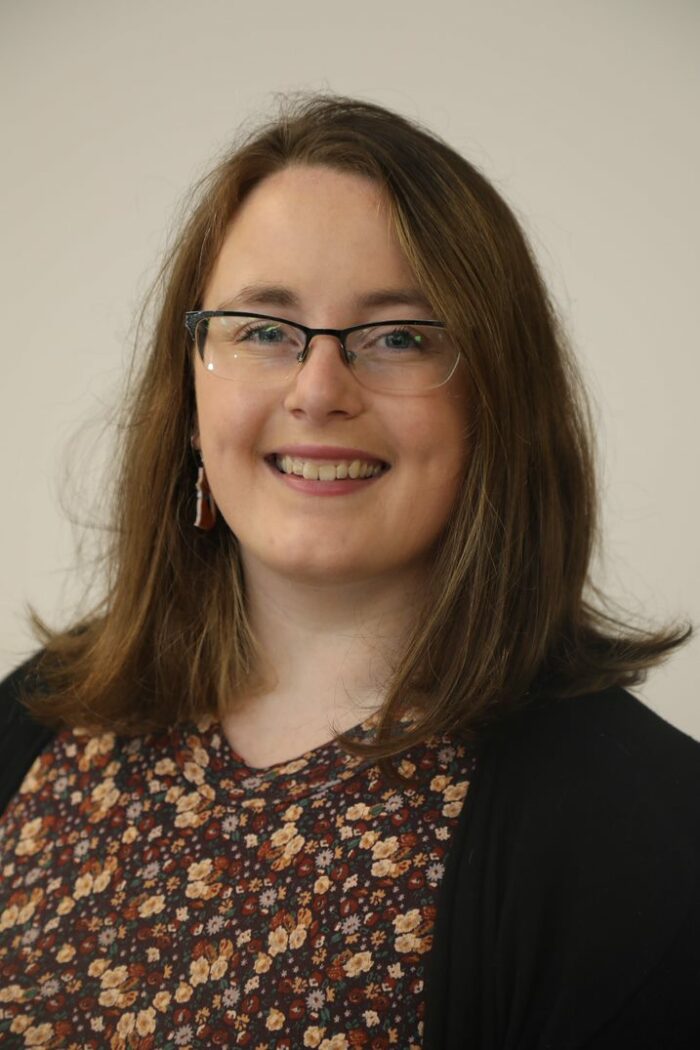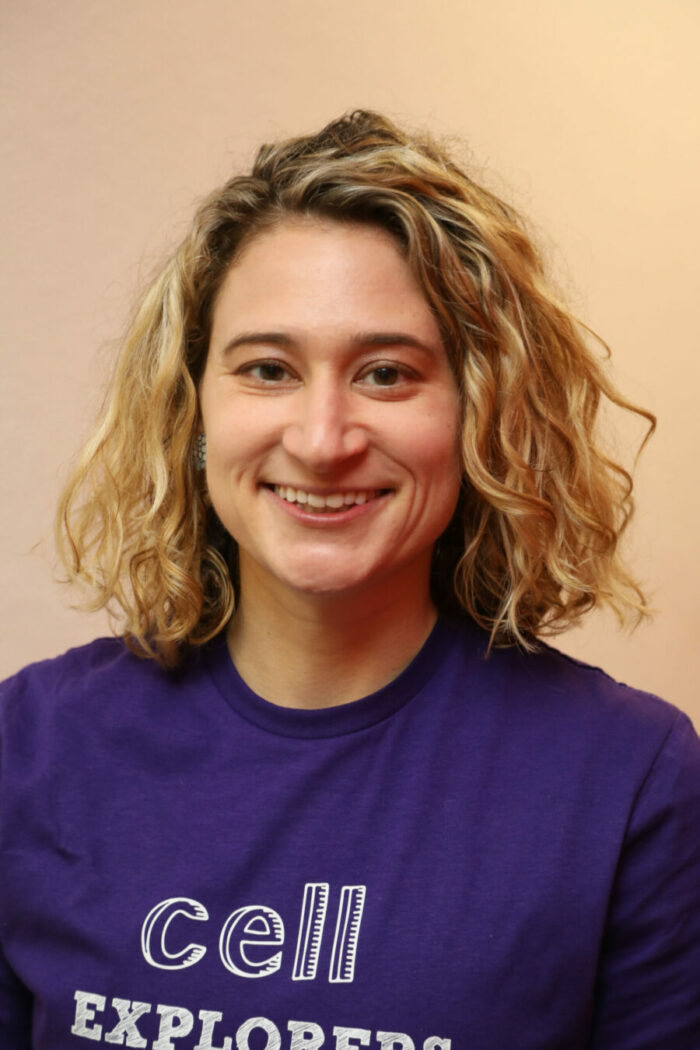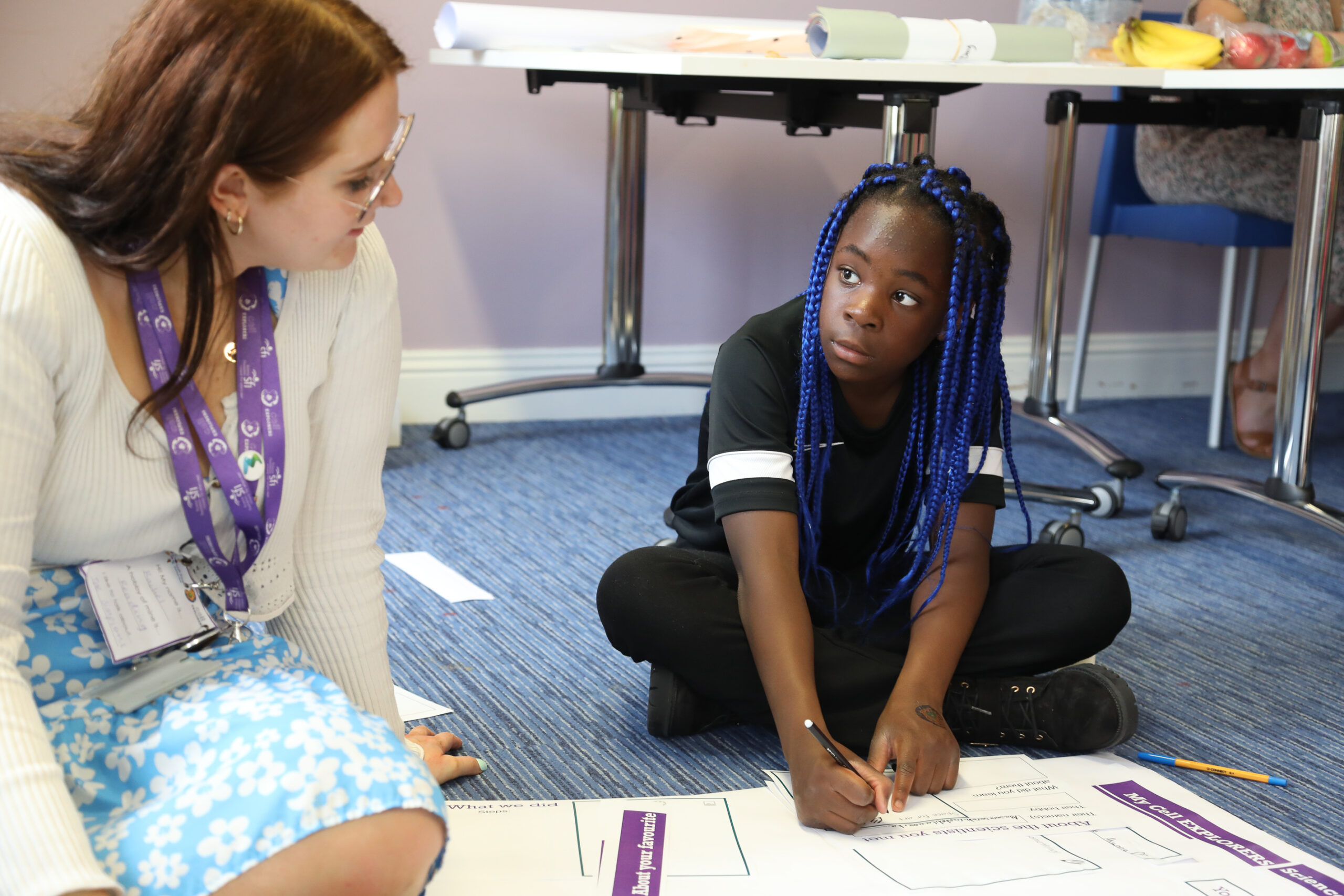
Cell EXPLORER’s recently launched the GROWS project to challenges perceptions around who gets to be a scientist—inviting young people from disadvantaged and minoritised groups to discover science through creative and novel activities—and analysing the societal impact along the way. Here former National Coordinator Dr Sarah Carroll and GROWS Manager Dr Kristin Anderson delve into the benefits of creative engagement for scientists and young people alike.
Meadhbh McNutt: Can you take us through the Cell EXPLORERS mission and how it came about?
Sarah Carroll: Cell EXPLORERS was piloted as a student-staff collaborative project at University of Galway in 2012, funded by the University Explore Innovation programme. I was a first-year Biotechnology undergraduate. Our Director, Dr Muriel Grenon walked into one of my lectures in 2011 and said, “I’m thinking of doing this thing where we bring science students and scientists to schools to do experiments with pupils.” A part of me had always wanted to do teaching and I thought that this would be something fun to do for a month or two. The project was a success and 11 years later, we’re still here.
Muriel saw this project as a way to address the need for structural, experiential training in public engagement—whilst also providing opportunities for young people to meet real, local scientists and experience hands-on experiments that may have been otherwise unavailable due to lack of confidence, resources and space.
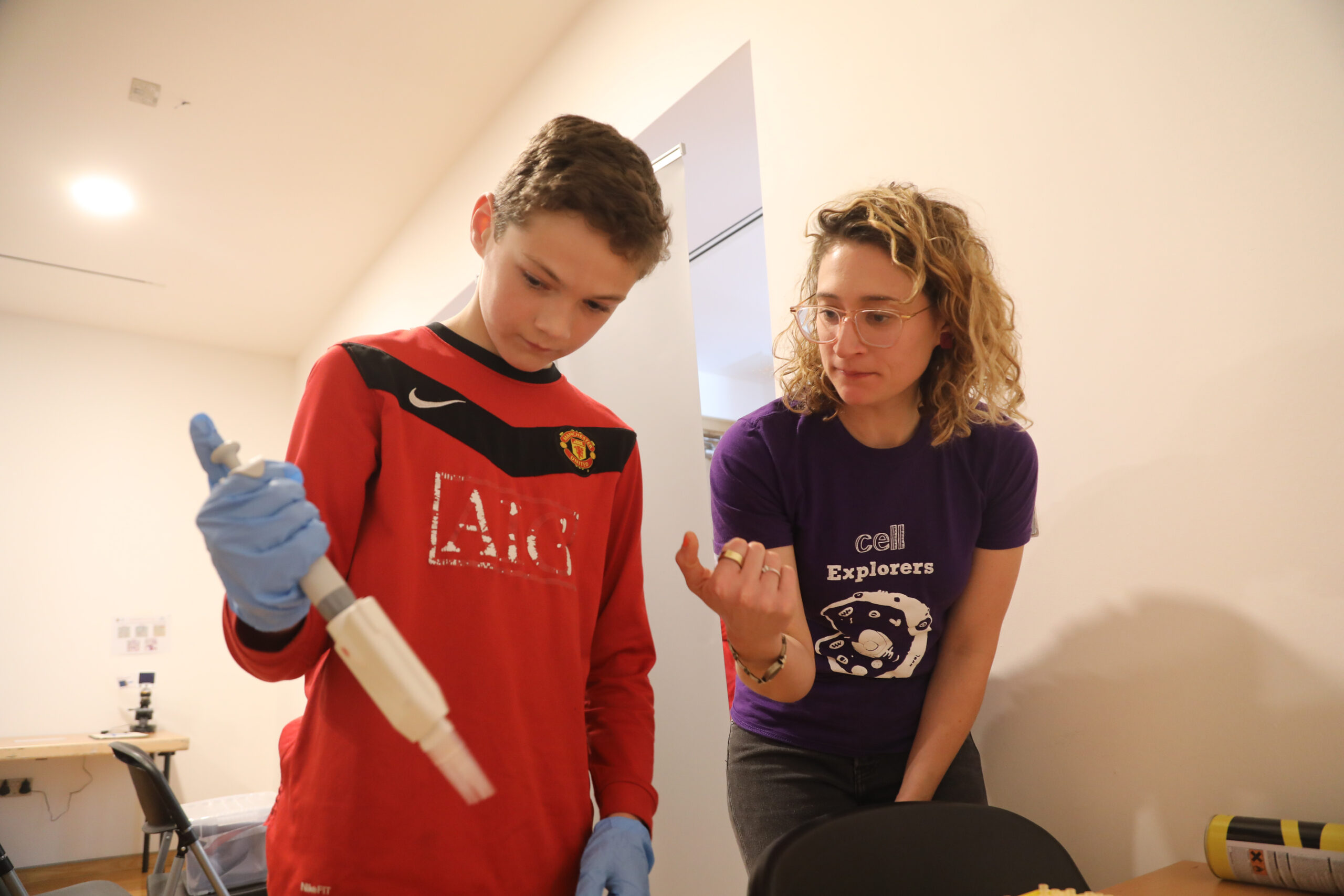
MM: Do you think creative engagement receives enough recognition as a valuable part of research practice?
Kristin Anderson: Public engagement is not often seen as a valuable endeavour for scientists and is rarely part of the training to become a scientist, but I became a better scientist by learning how to communicate with the public. When you have to explain your science to somebody, you arrive at new insights, you hear new questions and you get more in touch with the why behind the research. Seeing that spark in a child when they’re practicing science for the first time while also discovering a new vantage point for my research—that solidified the value of public engagement for me.
SC: There is often a perception among PIs (principal investigators) that time not spent at the bench is time wasted. When people think about scientist-facilitated public engagement programmes, they are quick to think of the benefit to young people and the community, but they rarely think of the benefit to scientists. What we’ve seen in the literature and in the ten years of Cell EXPLORERS is that these programmes help scientists build skills, and can often reinvigorate their own thinking and motivation regarding their research. For many volunteers, seeing young people’s curiosity and enthusiasm about science reminded them why they pursued science in the first place.
We’ve had over 1,800 volunteers in 10 years. I recently did a retrospective study where I interviewed volunteers about the impact of the experience, and each volunteer highlighted the transferable skills they gained—skills that were otherwise inaccessible in a normal academic career. For a lot of them, their participation became the only piece of evidence they could give in interviews to demonstrate these skills.
Others may have been feeling down about their research due to funding or failed experiments. Then they meet an enthusiastic young person who asks, “If I eat my banana’s DNA, then why don’t I become my banana?”, and ask themselves, “I know you don’t but—why?” [Laughs]
KA: When you’re a scientist, you can get so deep into your alphabet soup and the day-to-day activities that you become distant from the why behind your work. Public engagement can help you to reconnect to the why. So, there is a dual benefit to public engagement for both the public and the scientist. Cell EXPLORERS is also impactful in that it’s helping to create a more scientifically literate society. For instance, even young people that have no desire to become scientists may be interested in science-adjacent topics or recognise opportunities to interact with science in their everyday life. I’ve seen children concerned about climate change, for example, become more confident in creating projects around that topic after a programme like Cell EXPLORERS has lit the initial spark and built some confidence.
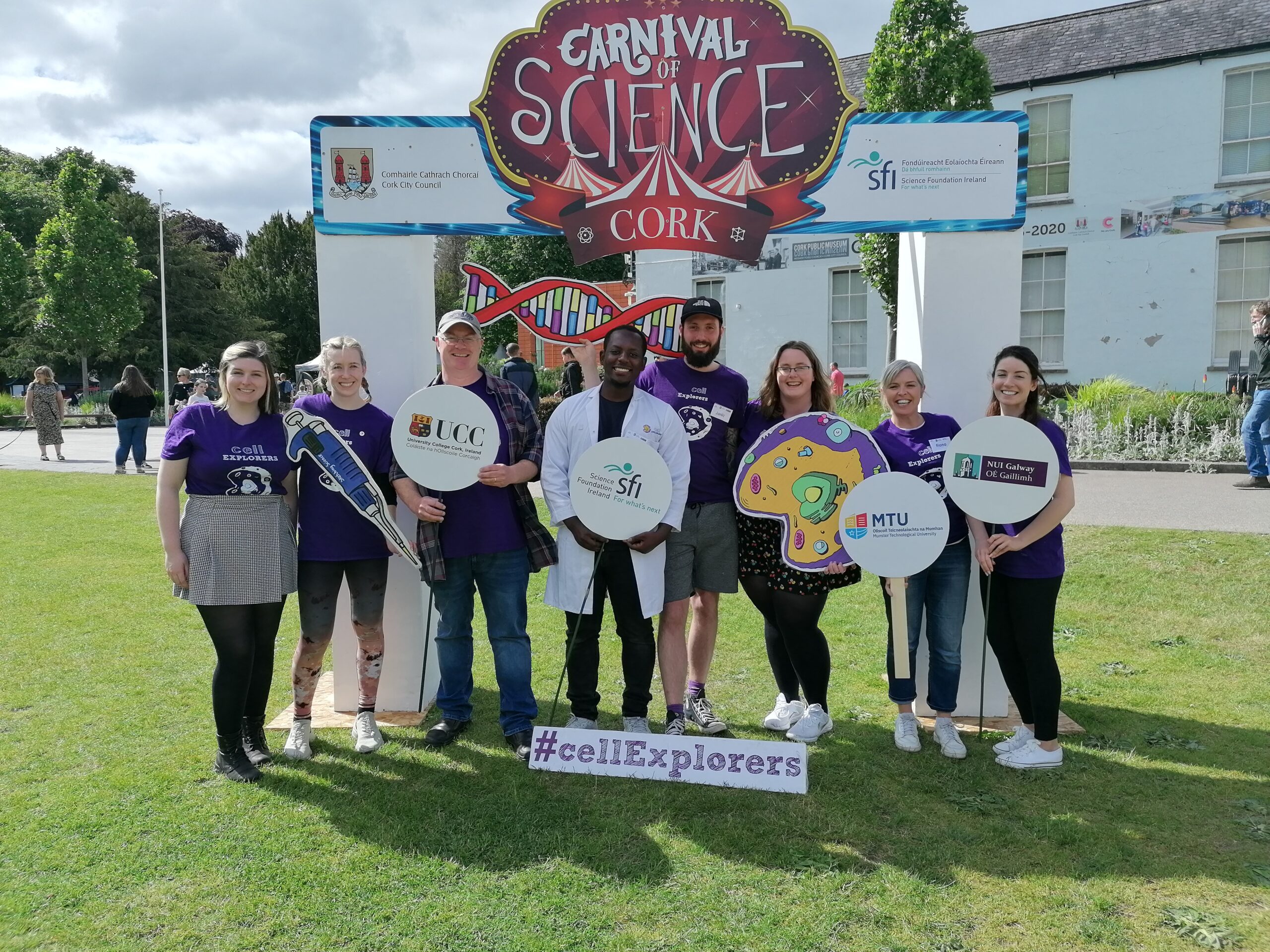
MM: How did you go about researching, developing and trialing activities for children, such as the Escape Room?
SC: Everything we do is based on evidence and research, whether that’s from literature or our own systematic evaluation of activities. We sit at the intersection of a lot of different fields—learning sciences, social science, pedagogy and public engagement. So, the underpinning theoretical frameworks can be complicated, shifting between different nomenclature and theories.
Recently, we’ve been trying to implement more social justice and equity-based approaches. Our activities were once pitched in a way that treated everyone equally, but we’re now recognising that ‘equal’ and ‘equitable’ are not the same thing. Sometimes things need to be adapted to reach a wider audience, and this is the intent behind our new GROWS project. In general though, we start with best practice when designing a new activity and try to collaborate with experts where possible.
The Escape Room, for example, was designed in collaboration with our ‘Escape Room artist’—Dr Ran Peleg, based in the University of Southampton. Once the activity is designed, we test it with partner schools. Are we achieving the intended experience? Usually the first response is “no” but we implement that feedback from young people and teachers into our redesign. The Escape Room that exists today is the fifth or sixth version of its initial design.
When working with specific communities or minoritised and disadvantaged groups, like with the GROWS project, we try to collaborate with people from those communities. So, it’s not a case of outsiders designing something for a community of which they’re not a part. For that reason, we also collaborate with University of Galway’s Access Office and the University of Sanctuary.
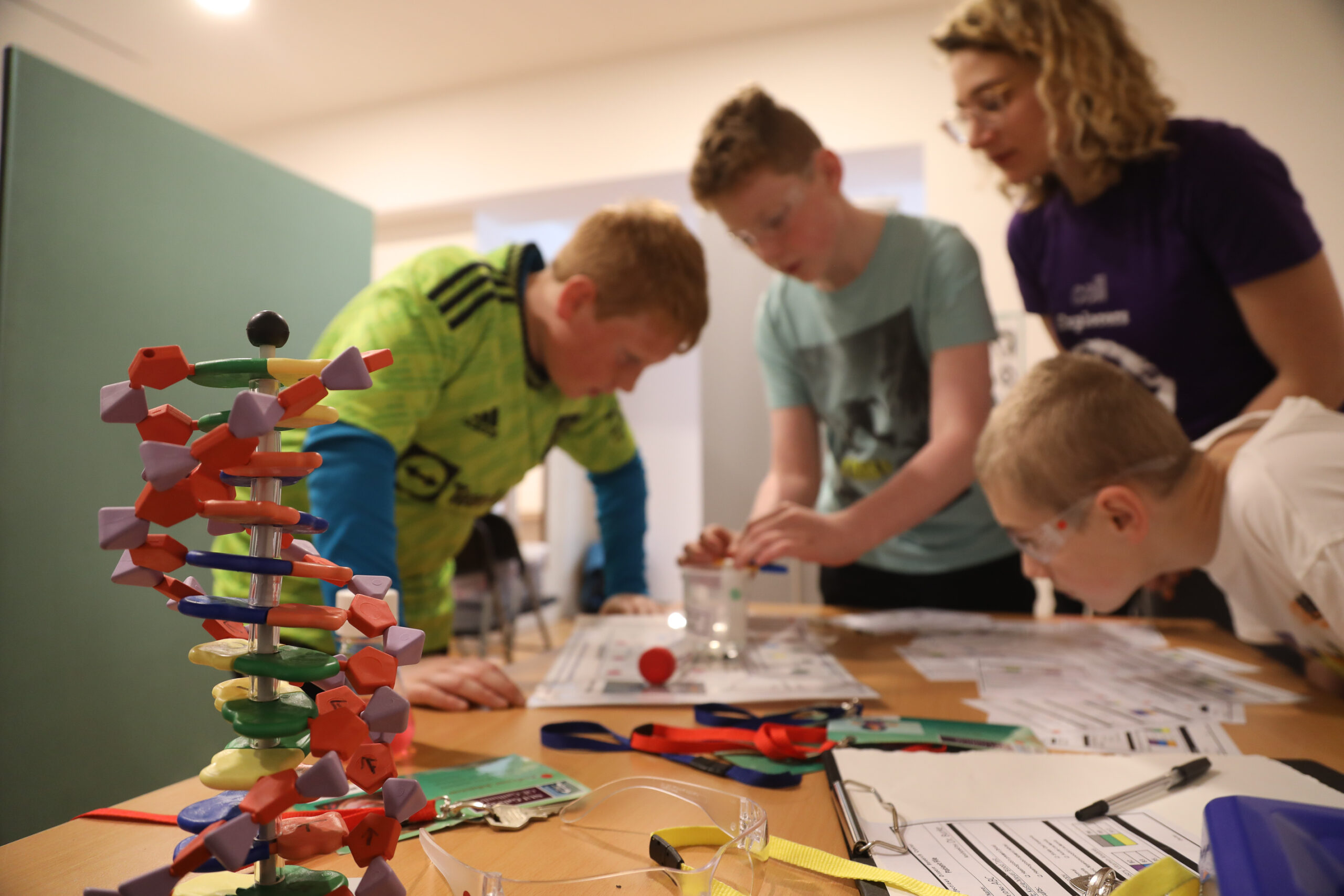
KA: Cell EXPLORERS has always been open to everybody, but minoritised groups might not have known about, or had access to, the initiative. There are unique barriers to reach social inclusion and we are taking our first steps to overcome those barriers. Our goal is ultimately equity – an active solution that truly widens participation in STEM. To achieve equity, we are designing creative ways of incorporating equity best practices, and actively partnering with these communities to tailor a programme, instead of simply offering a programme.
We’re partnering with people from different communities in Ireland to learn more about what these young people are comfortable with, and how to build upwards from there to bring a newfound joy in the spark science can bring. We value the expertise already within the communities.
SC: Part of the GROWS project is investigating the impact of the Science Club. We often get asked, “How many children end up studying science at university because they did this one hour with you when they were 12?” The answer is obviously too complex to be summed up in one precise figure. The ecosystem and the wrap-around services all contribute in their own way, and Cell EXPLORERS hopefully acts as but one positive contributor to a young person’s science capital.
For our most popular workshop, “Fantastic DNA”, we ask children to complete a feedback form. One of the questions is: “Have you ever met a scientist before?” Dependent on the year and location, 40–60% children say that the Cell EXPLORERS scientist is the first scientist they have ever met. Whether that is true or not is another story, but that is their perception. And when you’re talking about someone’s perspective, it’s perception that matters most. The influence of this first meeting on their attitudes towards science is important.
In my own PhD, I looked at the effect of this workshop on young people’s confidence. A primary finding from my work was the uniqueness and value of that supportive environment for children—where a real scientist is helping you and telling you that you’re doing a good job. One young girl I interviewed put it like this, “When a scientist tells you you’re doing a good job, they mean it.”
How can you summate human relationships? During the launch of our Science Club, we noticed that one girl wasn’t really engaging. Each kid wears a lanyard showing one of their hobbies. One of our scientists, Alison noticed that this girl liked skateboarding—a spark happened—and they started talking about skateboarding. The next day, the child was looking for Alison. I think it’s little moments like that, moments that can’t be captured in the data, that make it worthwhile.
There is a dearth of research on young people’s perceptions of scientists in Ireland. Across the years, we have heard children say things like, “I didn’t realise women could be scientists.” They expect a scientist to be an older person with mad hair and glasses. At Cell EXPLORERS, the scientist is often a young student from around the corner—so much more relatable. In giving young people the opportunity to meet a variety of scientists, we’re getting across the point that: you don’t have to look a certain way, act a certain way or have a certain background to become a scientist.
MM: And that diversity can only be beneficial to the field itself.
KA: The best kind of science comes from collaboration, and that only works when people with different experiences come together. I was the first person in my family to go to college so had a different perspective from others. I chose to study neuroscience because I saw friends that developed severe anxiety and depression after being bullied in school, and needed long-term care. Being close to someone who suffered from the disease meant that I had a very different perspective. I was asking questions that wouldn’t have occurred to the other students.
That made me realise that we need diversity in every way, shape and form. When we bring all these different life experiences and cultural differences together, that’s when we can start to move towards the truth of things—which is the ultimate goal of science.
MM: How has this project changed the way you see creativity and its role within research?
SC: Everything we do is ascertained to best practice and we do have limitations being based in a public university. However, we try to be flexible in everything we do and provide the best experience to young people within those limitations.
There is the stereotypical trope that science is not creative, which is just wrong. You’re not spending all day painting, but you have to be creative when thinking of solutions to challenges that you encounter in science all the time. Your experiment doesn’t work out; what do you do about it? You can’t afford fancy equipment; how can you use a subpar machine to do the job?
I think that creativity and autonomy are linked. We like to give young people choices in how they engage with science. The Science Club is one example of an activity designed to support young people to become more independent and confident as they progress. These hands-on activities usually involve everyday materials mostly available in the home. At the end, they create a poster reflecting on their experience using a range of provided mediums.
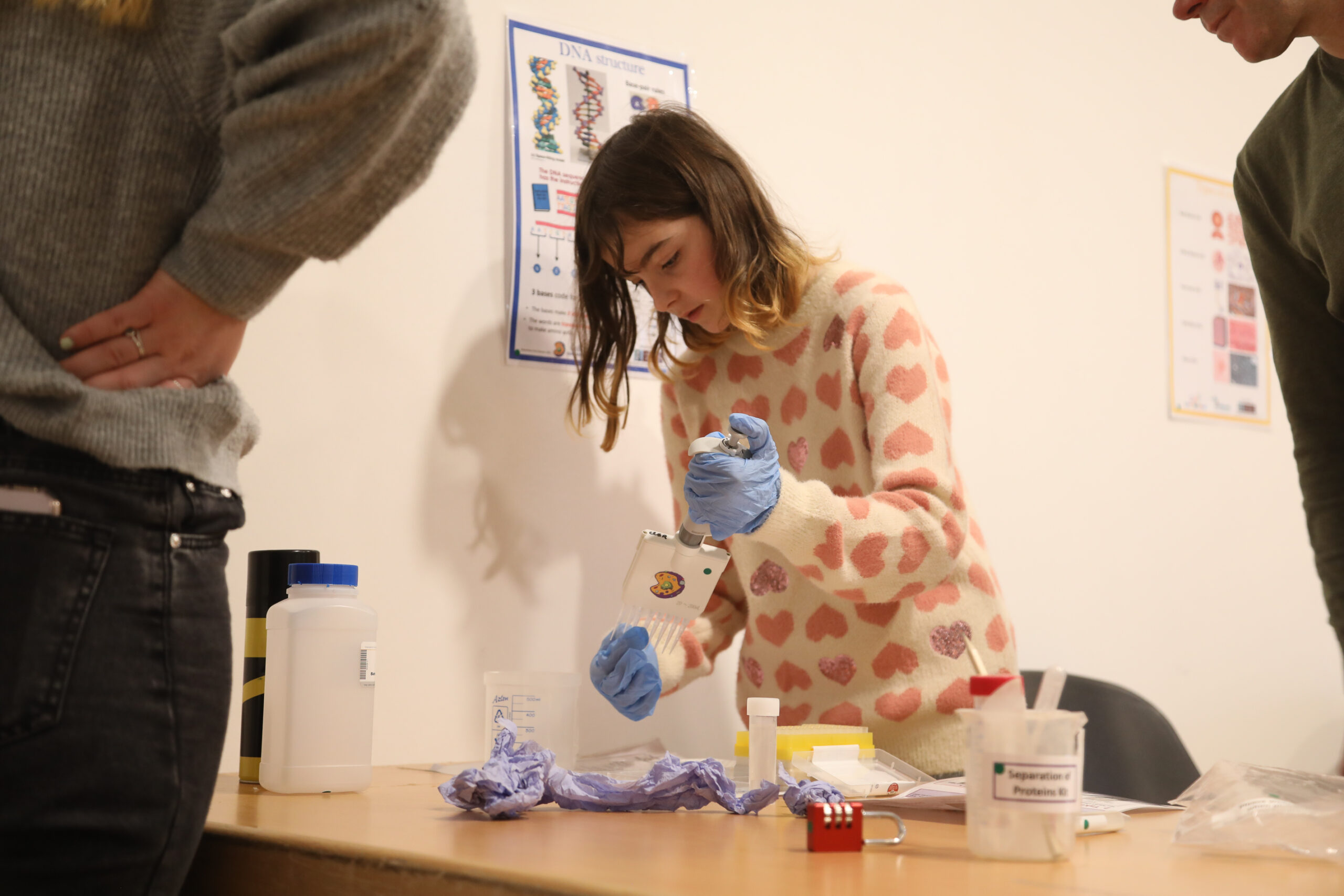
KA: Everything creative is living in the space of the unknown, and asking, “how do we make something out of that?” This is where I see similarities in art and science; an artwork conveys a message or a feeling, and science is trying to create knowledge from this unknown space. In science, you have to live in that unknown space.
Cell EXPLORERS’ network of 13 teams across Ireland is led by the University of Galway and funded by Science Foundation Ireland and their respective institutions. The roll-out of the Science Club and Escape Room activities as part of GROWS is funded by the Medtronic Foundation with the support of the Galway university foundation.
Profiles
